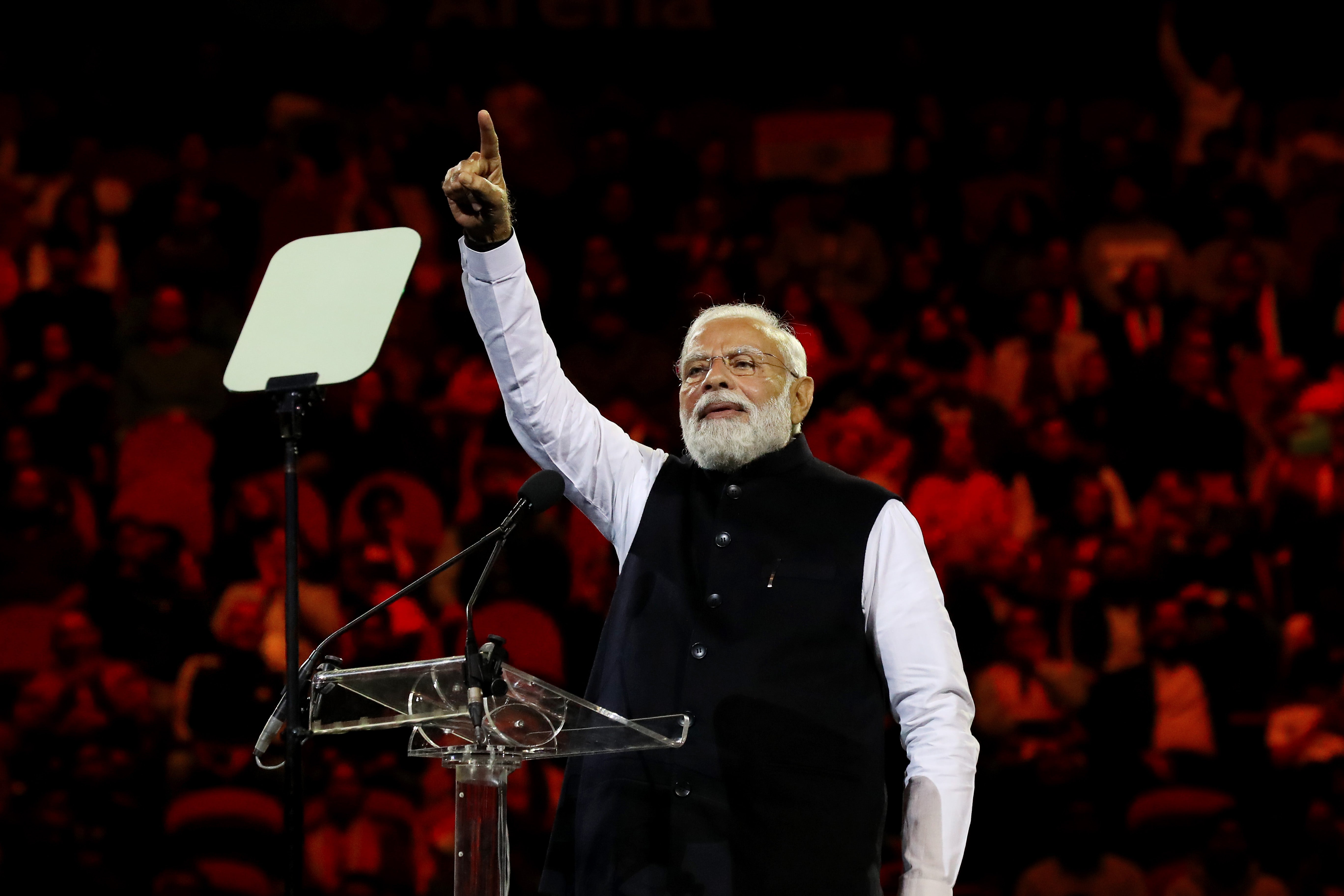Australia quietly expelled four Indian spies who targeted politicians and defence tech — report
Their expulsion was kept quiet to avoid public embarrassment for Narendra Modi’s government, ABC investigation finds

Your support helps us to tell the story
From reproductive rights to climate change to Big Tech, The Independent is on the ground when the story is developing. Whether it's investigating the financials of Elon Musk's pro-Trump PAC or producing our latest documentary, 'The A Word', which shines a light on the American women fighting for reproductive rights, we know how important it is to parse out the facts from the messaging.
At such a critical moment in US history, we need reporters on the ground. Your donation allows us to keep sending journalists to speak to both sides of the story.
The Independent is trusted by Americans across the entire political spectrum. And unlike many other quality news outlets, we choose not to lock Americans out of our reporting and analysis with paywalls. We believe quality journalism should be available to everyone, paid for by those who can afford it.
Your support makes all the difference.Australia quietly expelled four Indian spies for intelligence activities targeting defence technology, politicians and airport security protocols, according to an investigation by public broadcaster ABC.
Australian officials were secretly troubled after discovering Indian spying activities in 2020 even as Canberra and New Delhi outwardly emphasised strong diplomatic and trade relations.
The Indian agents were attempting to gain access to sensitive defence technology and airport security protocols, targeting former and current politicians as well as a state police service, and monitoring the Indian Australian community.
In 2021, Australia’s intelligence chief, Mike Burgess, revealed that his agency had uncovered a “nest of spies” without naming India. In response, Australia discreetly expelled at least four Indian intelligence agents who had been posing as diplomats.
“We confronted the foreign spies and quietly and professionally removed them,” Mr Burgess said at the time.
“The spies developed targeted relationships with current and former politicians, a foreign embassy and a state police service,” Mr Burgess said in March 2021.
The spies “monitored their country’s diaspora community” and “tried to obtain classified information about Australia’s trade relationships”. They asked a public servant to provide information on security protocols at a major airport,” he said.
The ABC investigation revealed that the expulsion of the suspected spies was kept quiet to avoid public embarrassment for the Narendra Modi government, which has sought to project India as a major global player.
The nation behind the spy operation was “not from a country in our region”, Mr Burgess said at the time, and naming it “would be an unnecessary distraction”.
Greens Senator David Shoebridge said Australia should have publicly condemned India for its espionage activities.
“Not only would’ve it been good to have an honest baseline for our relationship with India, but it would’ve also sent a message to the diaspora communities here that we’ve got your back,” he said.
In April, the Washington Post reported about the expulsion of two Indian foreign intelligence agents from Australia.
At the time, Greens home affairs spokesman David Shoebridge said Australia needed to make plain to New Delhi that “these are clearly not the actions of a supposed ally”.
“Australia must have a robust, mature and honest relationship with India that includes being frank about the human rights and political challenges the BJP administration is creating both at home and abroad.”
India’s foreign ministry responded to the Washington Post report saying that it made “unwarranted and unsubstantiated imputations on a serious matter”.
The ABC investigation also revealed alleged threats against Australian Sikh activists by Indian authorities.
Moninder Singh, a Khalistan movement leader, was fearful for his safety even in Australia after his friend Hardeep Singh Nijjar was assassinated in Canada, allegedly by Indian operatives, the report said.
Nijjar was killed outside a Sikh temple in Vancouver in a coordinated hit allegedly orchestrated by Indian intelligence operatives.
In March this year, India blocked access to a critical ABC report about Nijjar’s assassination.
The Khalistan movement seeks to establish an independent state for Sikhs in northwest India, especially Punjab. The Indian government has designated the movement’s leaders as wanted terrorists.
The sheer number of expulsions of its operatives could place India on a par with countries such as Russia and China which are notorious for violating protocols overseas, ABC noted.
The ABC also reported that Mr Modi’s Hindu nationalist Bharatiya Janata Party was leveraging the Indian diaspora in Australia through the Overseas Friends of BJP and Rahul Jethi, a prominent figure in the group as well as in the Liberal Party, was suspected of recruiting members and influencing local politics, raising concerns about political infiltration.
India is an increasingly important trading partner for Australia, which is seeking to lessen its dependence on China.
The two countries are also strengthening military cooperation as members of the Quad security dialogue, which also includes the United States and Japan.
The Independent has contacted India’s foreign ministry for comment.
Join our commenting forum
Join thought-provoking conversations, follow other Independent readers and see their replies
Comments